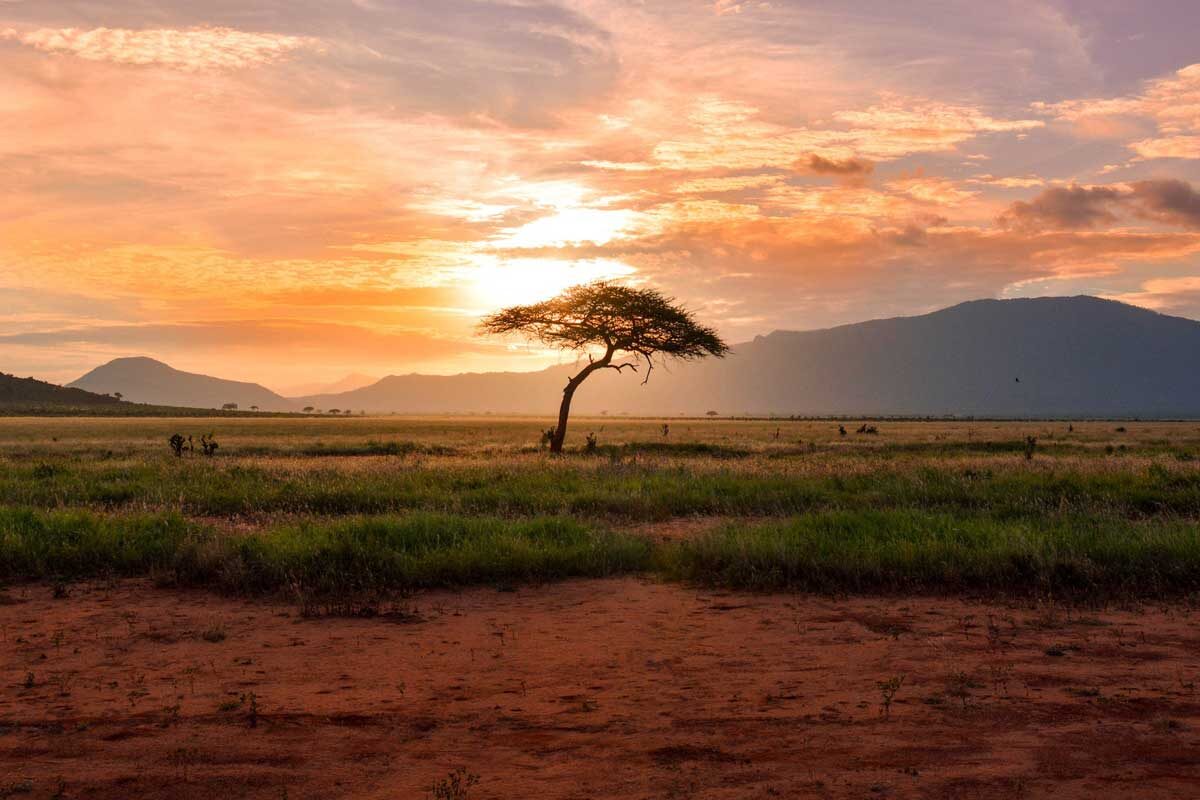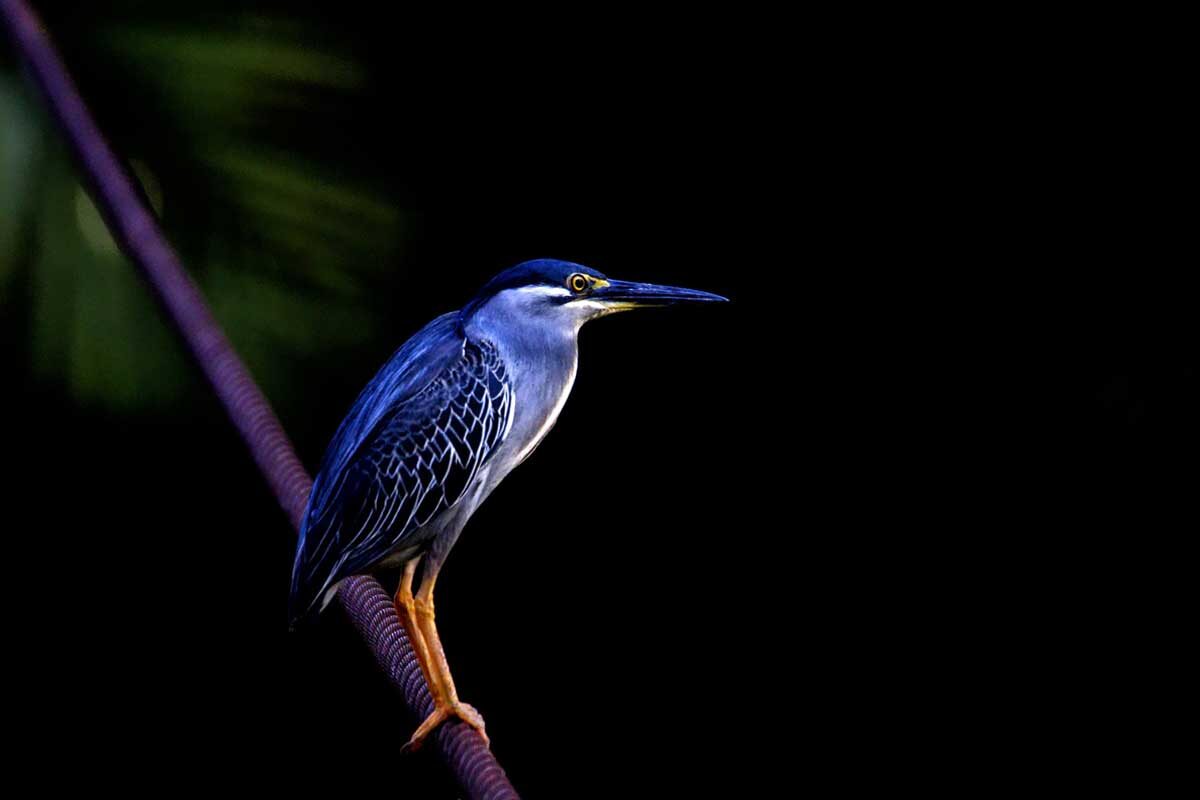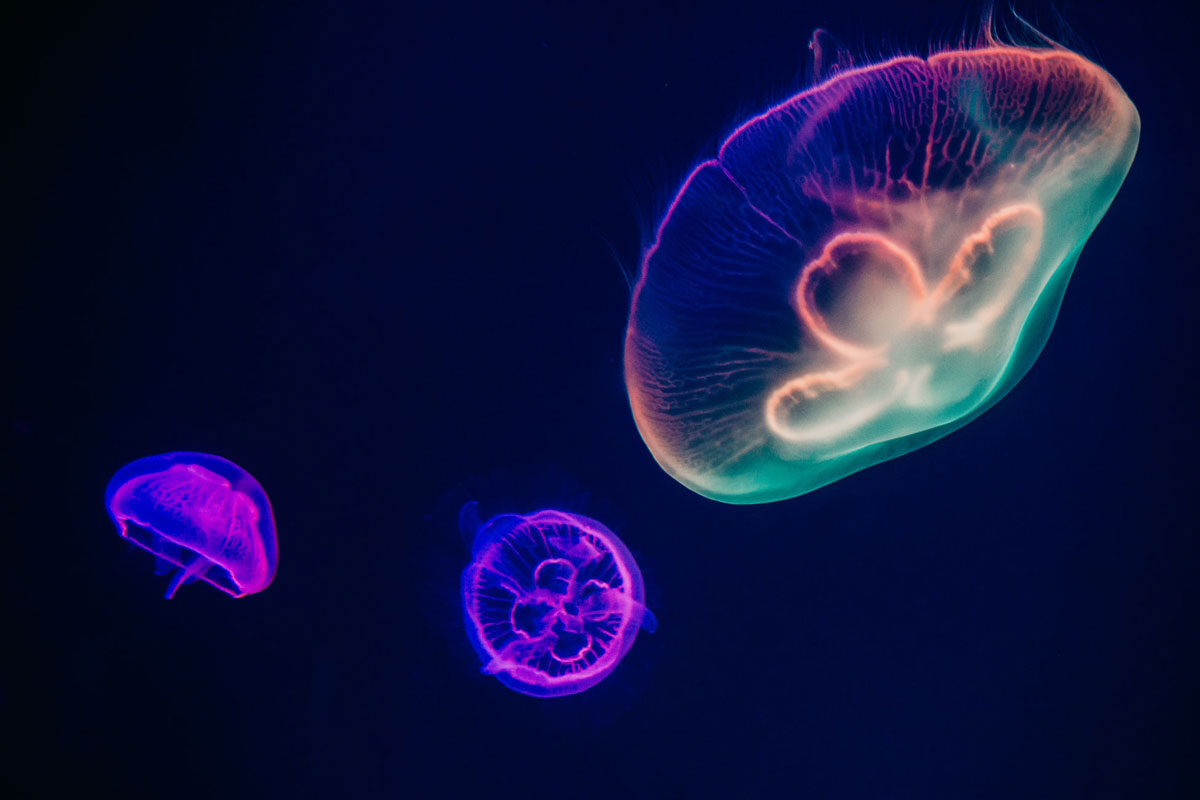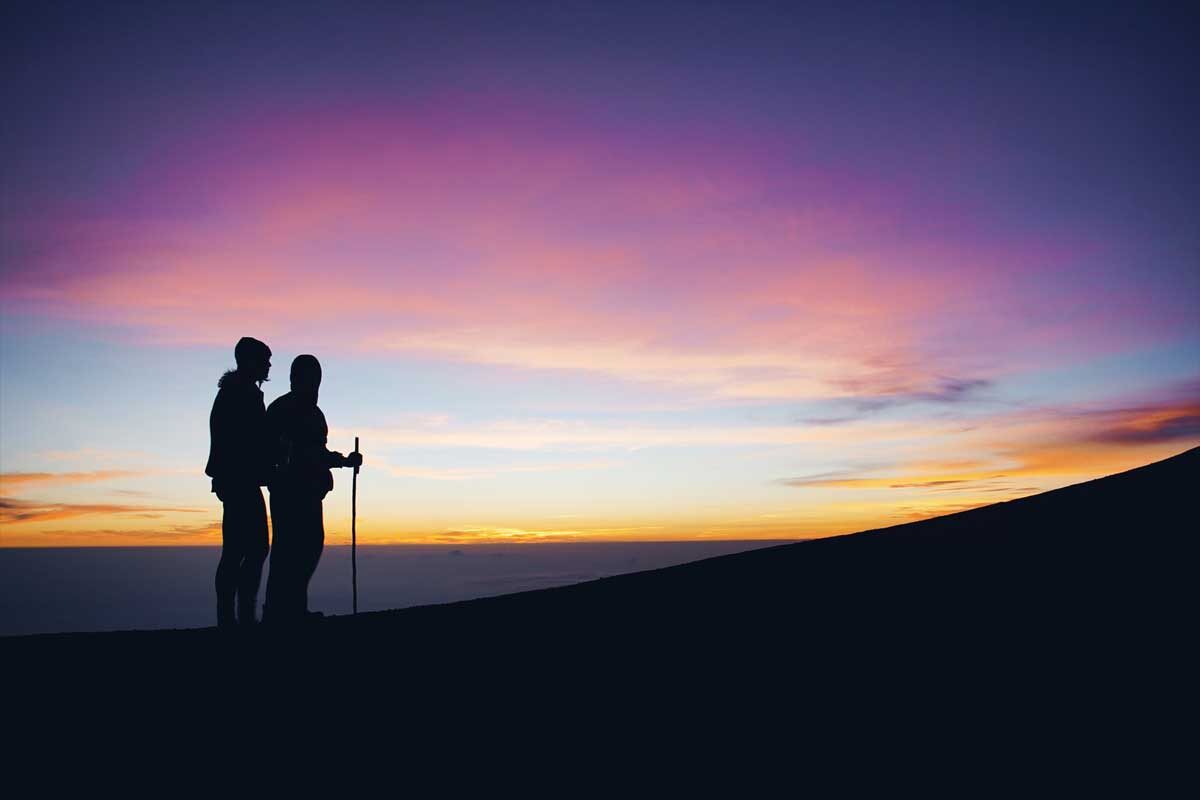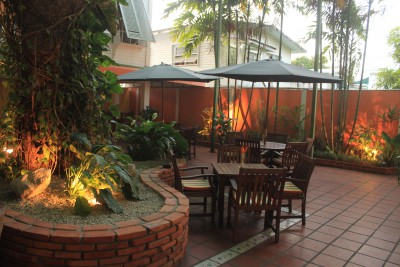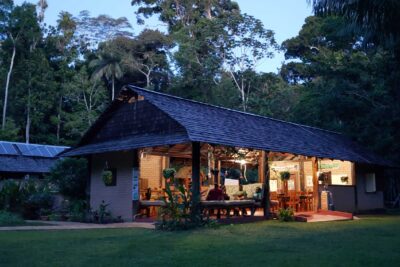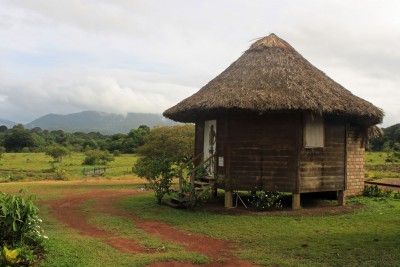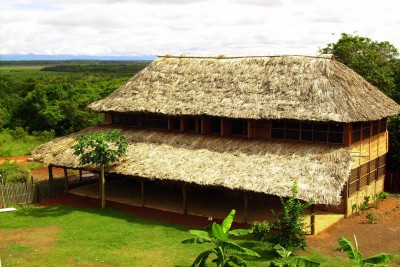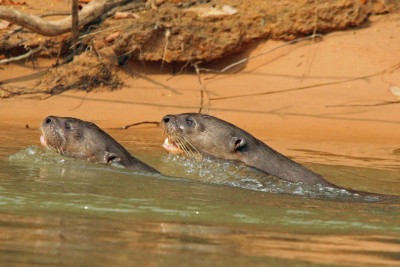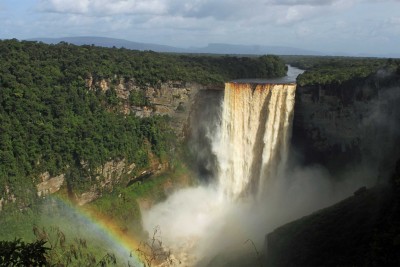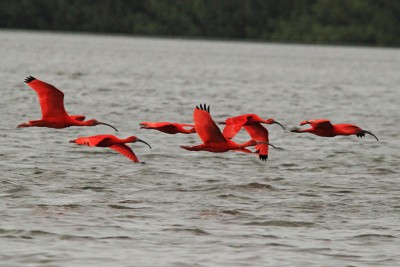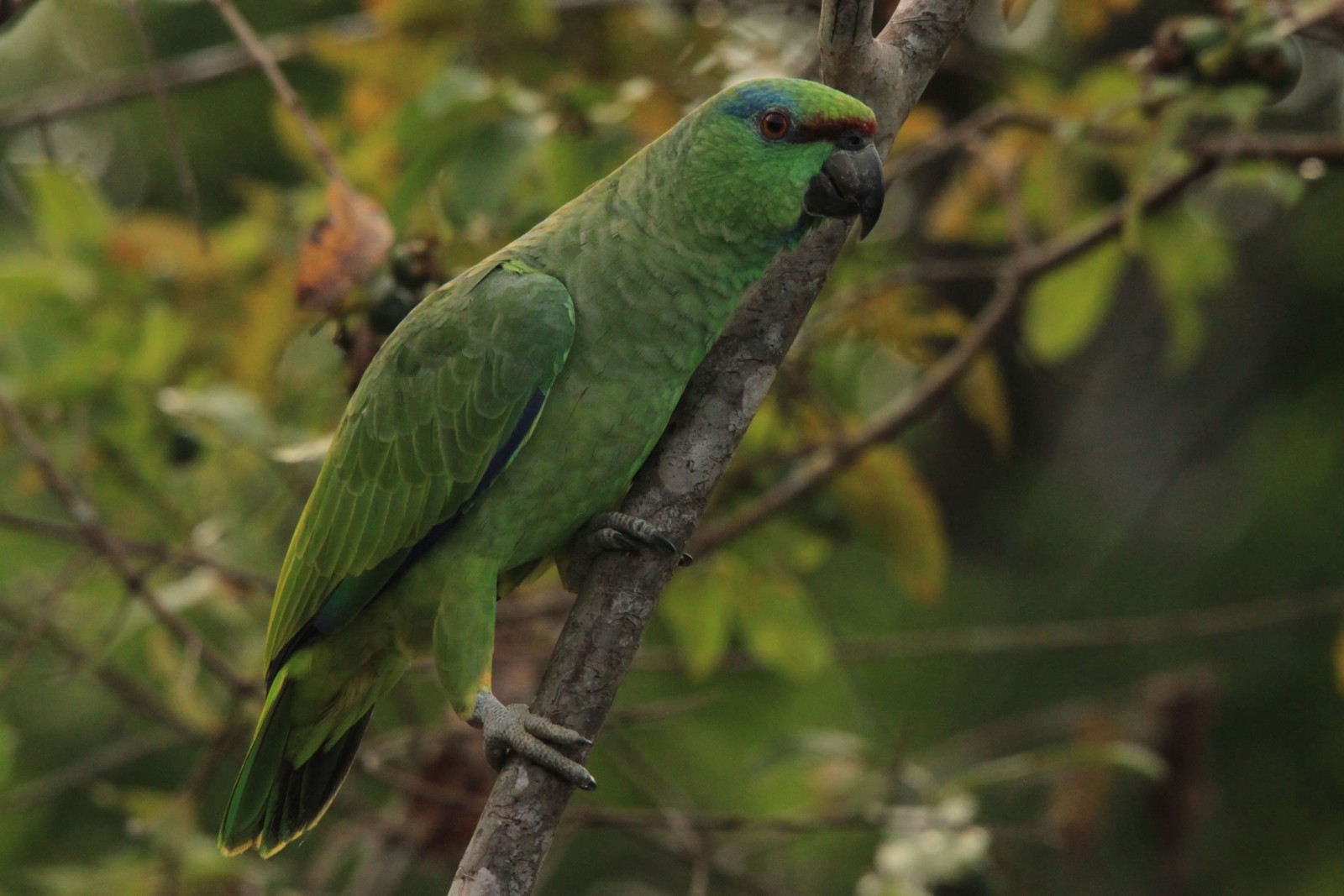
Natural Guyana Off The Beaten Track
Tour Introduction
This varied itinerary includes some of Guyana’s premier wildlife lodges as well as some less-visited wilderness properties which offer a far more remote wildlife experience. These are complemented well by the spectacular waterfall and cloud forests of Kaieteur and the colonial architecture of Georgetown, affording a comprehensive overview of the country and all its manifold attractions.
Full Itinerary
Arrive in Georgetown, Guyana. Met on arrival and transfer to hotel.
Staying at Cara Lodge. Includes In-flight Meals.
Fly to Annai and transfer to Iwokrama Canopy Walkway. Explore the canopy walkway for some excellent birdwatching and experience the life of the canopy as the sun settles over the rainforest.
Staying at Atta Rainforest Lodge. Includes All Meals.
Guided excursion on the canopy walkway to experience the dawn chorus in the forest. This is the best time to see and hear the wealth of birds found in the surrounding rainforest including many canopy feeding specialists, raptors, toucans and parrots and occasionally primates. The rest of the day is at leisure for exploring the walkway and the other trails in search of wildlife. Many of the trees are marked with identification tags along the trails, adding extra botanical interest.
Staying at Atta Rainforest Lodge. Includes All Meals.
A morning excursion to observe the lek (mating display) of the Guianan cock-of-the-rock in the nearby forest. Transfer to the Amerindian village of Surama. Upon arrival there will be a warm welcome from the community and tour of their village. Afternoon excursions along the river or through the forest with the local guides, followed by a night walk in the forest for nocturnal species.
Staying at Surama Eco-Lodge. Includes All Meals.
Today hike to the top of Surama Mountain to watch the sun rise and enjoy an al fresco breakfast. This is a great time to be birdwatching along this trail and for seeing primates at fruiting trees. After lunch back at the village, hike the rainforest trails looking for wildlife.
Staying at Surama Eco-Lodge. Includes All Meals.
Morning canoe trip along the Buro Buro River in search of wildlife. Possible sightings include black spider and red howler monkeys, scarlet macaws and toucans. There are several families of giant otters in the area that can be seen, with a little luck. The rest of the day is at leisure.
Staying at Surama Eco-Lodge. Includes All Meals.
Drive to the Rupununi River then transfer upstream by boat to the Amerindian community of Rewa. Staying at the Rewa Eco-Lodge enables you to see how the community, which has had little exposure to the outside world, lives as well as enjoying the diverse wildlife in the area.
Staying at Rewa Eco-Lodge. Includes All Meals.
Walk to the summit of Awarmie Mountain for a sensational view over the rainforest and, hopefully, sightings of several species of monkey and birds including the rare orange-breasted falcon. Afternoon guided excursions along the Rewa River to look for wildlife including eight species of monkeys, giant otters, black caiman, giant river turtles and macaws. A harpy eagle nest is sometimes occupied near the lodge – a rare treat if you are in luck.
Staying at Rewa Eco-Lodge. Includes All Meals.
Another day of guided activities including a visit to the traditional farming land of the community. An afternoon visit to Grass Pond offers beauty and tranquillity and more opportunities to see wildlife including many species of heron and bird of prey. The pond has a high concentration of the arapaima, the largest freshwater fish in the world, and some very large black caiman.
Staying at Rewa Eco-Lodge. Includes All Meals.
Transfer by boat and then drive to Yupukari and Caiman House. During the afternoon take an excursion along the river to search for giant otters, primates and other wildlife. In the evening you will be invited to watch and even participate in the study of black caiman along the Rupununi River. Researchers catch and collect data about the caiman, which are then released back into the river.
Staying at Caiman House. Includes All Meals.
Transfer overland. The Maipaima Eco-Lodge is a community run operation located in remote rainforest at the foot of the Kanuku Mountains. Time to rest or explore the nearby trails on arrival.
Staying at Maipaima Eco-Lodge. Includes All Meals.
Today hike for a few hours through pristine rainforest to Jordon Falls, an area of exposed rock with tumbling water and numerous wild swimming spots. There are hammocks for resting and al fresco dining. The Maipaima team are on hand to prepare overnight camping for the guests.
Staying at Hammock Camp. Includes All Meals.
Return to the lodge through the rainforest. Afternoon to explore trails from the lodge. A nearby cave is home to roosting bats; a Guianan cock-of-the-rock lek can be visited; try swimming in Maipaima Creek; and see demonstrations of traditional sculpture work from the local villagers.
Staying at Maipaima Eco-Lodge. Includes All Meals.
Drive to Lethem and fly back to Georgetown. Afternoon guided city tour of the principal sites including St Andrews Kirk, Stabroek Market and the Botanical Gardens.
Staying at Cara Lodge. Includes Breakfast.
Take scheduled flight to Kaieteur Falls and enjoy exploring the area with your guide. With a drop of 741 feet the falls are five times the height of Niagara and benefit from few visitors. The falls have even produced a special microclimate that has resulted in a cloud forest ecosystem supporting the massive tank bromeliad and its charming resident, the endemic Kaieteur golden rocket frog. Return flight back to Georgetown.
Staying at Cara Lodge. Includes Breakfast and Lunch.
Transfer to the airport and connect with your international flights home.
Includes Breakfast.
Tour Accommodation
Overview
Built in 1840, Cara Lodge is one of the oldest buildings in Guyana’s capital, Georgetown, and is steeped in history having hosted many world leaders, royalty and other dignitaries.
Built in the style of a traditional plantation house, Cara Lodge has spacious wooden verandas and large bedrooms with private facilities. There is a good restaurant serving good food, bar and comfortable communal area and the service is always attentive and friendly.
All rooms have air-conditioning, ceiling fans, cable TV, international direct dial telephones, minibars, hair dryers, tea and coffee facilities, private bathrooms with hot water and are decorated in colonial style. The rooms vary in size but all offer adequate space: some have verandas, and deluxe superior rooms are now available.
Swimming Pool
Air Conditioning
Rooms
Facilities
Restaurant and bar, 24-hour reception desk, internet access available: rooms have mini-bars, cable TV, direct dial telephones and tea and coffee making facilities.
Optional Activities
City tours of Georgetown and birdwatching excursions to the nearby Abary River. Charter and scheduled flights to Kaieteur Falls can be arranged.
Overview
Atta Rainforest Lodge has 8 simple en suite rooms set within a clearing in the wildlife rich Iwokrama forest and close to the base of the impressive Iwokrama Canopy Walkway. The lodge was built to provide guests with a base from which to access the canopy walkway at dawn and dusk when birds and other wildlife are most active. The setting for Atta Lodge is perfect for keen birders and naturalists as it is completely surrounded by dense rainforest bursting with biodiversity and frequently visited by red brocket deer, red-rumped agouti and the black curassow (a Guiana Shield endemic).
The Iwokrama Canopy Walkway is a series of suspension bridges and decks up to 30 metres in height and 154 metres in length that pass through an excellent stretch of rainforest. It provides a memorable view of the mid and canopy levels of the forest and affords excellent bird and wildlife viewing. Many canopy level specialist birds, including several Guianan Shield endemics, are commonly seen from the walkway, with the magnificent harpy eagle now being seen more regularly.
The main building houses the restaurant as well as a small bar and gift shop, lounge and collection of natural history books: there is some limited wireless internet access too.
The meals at Atta Lodge are particularly varied and tasty, always freshly prepared using local produce. Vegetarian and special diets can be catered for and one can visit the kitchen to see how the meals are prepared. The meals are usually buffet style and served under candlelight, creating a warm and cosy atmosphere. Power is provided by a generator that can be a little noisy. Note: the power is switched off between 10pm and 6am. The lodge has a sightings board and has deployed camera traps to record the exciting wildlife found close to the lodge.
Swimming Pool
Air Conditioning
Rooms
Facilities
The rooms have mosquito nets, torch, insect repellent, electricity (6am -10pm), private bathrooms (cold water showers), dining room, lounge with a small bar and library, sightings board and limited free Wi-Fi in the main building.
Local Wildlife
Birds regularly seen from the canopy walkway and surrounding trails include crimson and purple-necked fruit crow, pompadour cotinga, green aracari, Guianan toucanet, painted parakeet, red-and-green macaw, white-winged potoo and (with luck) the awesome harpy eagle. Mammals are more rarely observed but red howler, brown and weeping capuchin and even white-faced saki monkey can sometimes be seen. A staggering diversity of reptiles, amphibians, and butterflies are observable from the walkways and trails. The trans-national road to the lodge is one of the best places for sightings of jaguars and ocelots in Guyana. Some of the notable tree species include the bullet wood tree, greenheart and waramadan (which is endemic to this forest).
Optional Activities
Excursions along the canopy walkways, walking the trails through the forest and off-site excursions to see the lek of the Guianan cock-of-the-rock. By special request, nocturnal drives or walks along the main road can be arranged.
Overview
Surama Eco-Lodge is a rustic but comfortable property within the Makushi community village set in savannah bordered by beautiful virgin rainforest.
The Eco-Lodge and its activities are managed and operated solely by the Makushi people. Over 70 people in the community are employed either directly as hospitality staff, guides, cooks, artisans and driver or indirectly as farmers, hunters, fishermen, and construction and maintenance workers. Roughly 60% of the community’s income is now sustainably generated through tourism-related activities, and guests are treated as though they are staying in one of their homes.
There are 4 traditionally built benab buildings and 4 newer cabins that offer slightly more space. There are private bathrooms in each with cold-water showers, flush toilets and twin or triple beds.
Traditional home-cooked meals using locally grown and harvested ingredients are served in the main benab, where tea and coffee and filtered water are always available.
There is solar-powered electricity available in the central building for charging of batteries, but only a very limited internet service in the village office, which is a 40-minute walk from the lodge. A new option is the possibility to camp in hammocks in an open air wooden shelter next to the Buro Buro River while the guides prepare food and drink and demonstrate survival skills.
Swimming Pool
Air Conditioning
Rooms
Facilities
Rooms have private bathrooms with cold-water showers and flush toilets, dining room with electricity outlets, gift shop, bar and communal lounge area.
Local Wildlife
The Buro Buro River and the rainforest close to the lodge can produce sightings of black spider, red howler, weeping and brown capuchin monkeys and occasionally even tapirs. The area is fantastic for birdwatching with scarlet and red and green macaws, white-throated toucans, black-necked aracari and large birds of prey commonly seen. Many Guianan Shield endemics can be tracked down in the forest and a huge diversity of snakes, lizards and tree frogs can be seen in the area. Surama Mountain is another hotspot for primates, in particular black spider monkey, red howler and two species of capuchin.
Optional Activities
Excursions include boat trips along the Buro Buro River, treks across the savannah and forest to see wildlife, a pre-dawn trek to the top of Surama Mountain to see the sunrise and informative tours within the village including visits to the school and other points of interest. Another activity offered is a walk through the forest with demonstrations of local plant use.
Overview
Found at the confluence of the Rupununi and Rewa Rivers, Rewa Eco-Lodge is a community tourism project run by the friendly Makushi tribe at their village of Rewa. The community has had little contact with the outside world and service is in the style of a warm, convivial homestay.
Rewa Eco-Lodge is located in a remote part of the forest so low tourism and community impacts have left the natural environment virtually pristine. The lodge faces the Rewa River and is surrounded by rainforest: many interesting species can be found on forays around the grounds including troops of common squirrel monkey and rare golden-handed tamarins.
The standard guestrooms are situated in two traditional circular benab buildings. There is a large, central benab building with a kitchen and dining area. Three separate shared shower and bathroom huts sit behind the round benabs.
Three new single-room buildings with attached bathrooms have recently been built and hammocks are available on the benab porches and under the trees. The rooms are basic but clean and comfortable and offer a very wild and adventurous experience. The food is handmade and most of the ingredients are grown or found on site and the rest brought in by canoe. There is no drinking water available at the lodge – water must either be brought in or boiled.
Solar powered electricity provides lighting and power sockets in the rooms but the power is turned off between 11pm and 6 am.
Excursions include boat trips along the Rewa River and trips deep into the rainforest to camp overnight in hammocks with mosquito nets, and exploring the forest in search of wildlife.
The lodge is accessed along the Kwatamang and Rewa Rivers on boat trips of between 2 and 5 hours, depending upon the water level.
Swimming Pool
Air Conditioning
Rooms
Facilities
Private bathrooms with cold water showers (some rooms have shared bathrooms), electricity supply in the main building, hammocks, gift shop, bar, dining room, Wi-Fi in the main benab (slow connection).
Local Wildlife
The forest surrounding the lodge is excellent for primates with 8 species present including red howler, black spider, common squirrel and the normally shy Guianan saki and rare golden-handed tamarin are seen reguarly. Giant otters, three-toed sloths, and blue and yellow macaws are also frequently spotted on river trips and during the dry season giant Amazonian river turtles and black caiman too.
Optional Activities
Motorised boat and canoe trips along the Rewa River, including excursions to the rock formations at seawall to see nesting giant Amazon river turtles (dry season only) and the grass pond to see herons, birds of prey and for optional fishing. Trail hiking and walks to the summit of Awarmie Mountain. Visits to the community school and tours of the village are also available.
Overview
Caiman House is the hub of several participatory development projects including the introduction of classrooms and libraries in all 3 village schools, an internet-enabled public library, and a non-profit job creation scheme for the local villages, involving tuition in craft skills and furniture building.
Accommodation is in 4 simple but large and comfortable rooms with en suite bathrooms (cold water showers only). The rooms are situated around the large central building. There is solar-powered electricity, US-style power outlets in all the rooms and wireless internet access throughout the lodge.
There is a lovely open sitting room inside and an open deck. All furniture at the lodge is made by local craftspeople. Meals are served in the dining room and women from the local village prepare the food. Caiman House offers a truly indigenous village experience, giving guests an interesting insight into locals’ lives combined with a fascinating and unusual wildlife experience.
There is an ongoing study of the black caiman around the lodge. The black caiman is the largest member of the alligator family and an endangered species found only in the Amazon basin. The caiman are captured, weighed, measured, sexed and tagged before being released back into the river (capturing the caiman is more difficult during high water periods). Guests are invited to watch or participate in this activity if they wish.
Swimming Pool
Air Conditioning
Rooms
Facilities
Restaurant and communal area, private bathrooms, electricity and Wi-Fi.
Local Wildlife
Wildlife found along the river includes black and spectacled caiman, giant otter, Brazilian tapir, opossum, Guianan squirrel, red howler monkey and reptiles including Amazon and emerald tree boas, anacondas and green iguanas. Trails through the forest offer good birdwatching and a chance to see some of the smaller wildlife such as tree frogs and butterflies.
Optional Activities
Walking trails through the forest and boat trips along the river including participating with the capture and data collection of black caiman.
Overview
The community-run Maipaima Eco-Lodge is situated within Napi village in the remote, forested Kanuku foothills of central Guyana.
The lodge receives very few visitors each year mainly because of its difficult access, but those that do make the effort are treated to a very special experience. Staying at Maipama enables guests to discover the way of life of the community first hand, experience the extraordinarily diverse rainforest and maybe visit the beautiful Jordon Falls.
Accommodation is in 2 separate traditional benab huts, each containing 2 private simple bedrooms and there are separate bathrooms attached to each.
There is a large communal benab containing a dining room where the chef serves very good traditional food. There is no phone, internet or radio access and a generator provides electricity for only a few hours a day. Maipaima Eco-Lodge is suitable for those looking for an off the beaten track location and remote jungle adventure.
Excursions include a trek through pristine primary rainforest to the beautiful Jordon Waterfalls. Overnight camping can be arranged there in hammocks. Other activities include birdwatching along trails, a visit to a lek of the Guianan cock-of-the-rock, visits to a cave with a large bat roost and wild swimming in the local river. The villagers are also keen to showcase their sculptures using a rubber-like substance called balata which is harvested from trees.
Swimming Pool
Air Conditioning
Rooms
Facilities
Private bathrooms (cold water showers) and electricity for a limited amount of hours per day.
Local Wildlife
A lek (display site) of the spectacular Guianan cock-of the rock is found close to the lodge and, with luck, should provide superb views of the male bird’s impressive mating display. A maternity roost of several species of bats occurs in a large cave nearby. The rainforest is home to a staggering diversity of birds, mammals, reptiles, amphibians and butterflies and monkeys and macaws are frequently seen.
Optional Activities
Excursions include a trek through pristine primary rainforest to the beautiful Jordon Waterfalls. Overnight camping can be arranged here in hammocks and other activities include birdwatching along trails, a visit to a lek site of the Guianan cock-of-the-rock, visiting a cave with a large bat roost and swimming in the local river. The villagers are also keen to showcase their sculptures using a rubber-like substance called (balata) harvested from trees.
Route Map
Departure Dates
Travel Information
Are International Flights Included?
No. Please contact us for a quote if required.
Flight Info:
British Airways fly from London Gatwick to Barbados or Antigua where a connection (unprotected) with Liat Airlines can be made to Georgetown, Guyana.
Best Visited:
January to January
Are you ATOL Registered?
Yes. This means we are legally able to book your international flights in conjunction with your ground arrangements so you can book with us with complete confidence. Read more about our ATOL license here.

John Melton
Area Specialist
Rise early at Rewa Lodge to look for primates in the trees around the lodge just after first light. The rare golden-handed tamarin and shaggy brown (Guianan) saki monkey are often spotted here.
If you have any questions regarding this Tour, please feel free to contact me on +44 (0)1803 866965
We have had a truly wonderful Guyana holiday. The hospitality has been amazing. Our transfers worked extremely well, your agents did a first class job.
